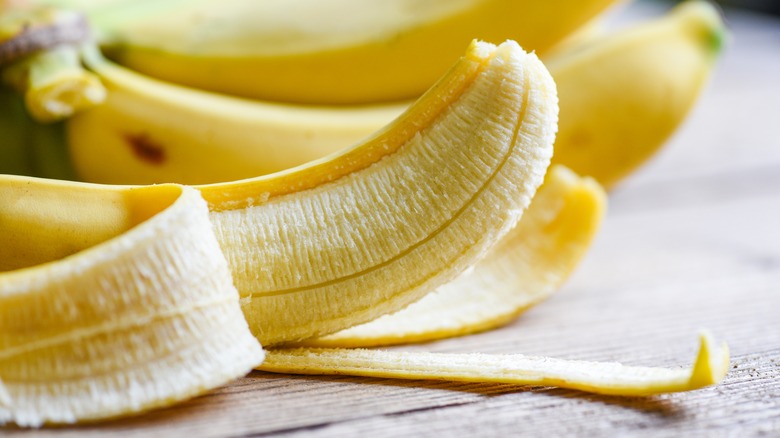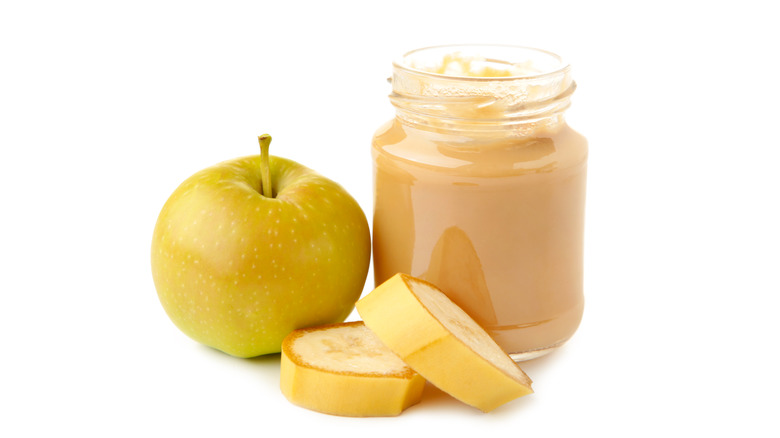Is It Possible To Make Canned Bananas At Home?
People like bananas. That's not random conjecture, it's a fact. In 2021, according to Statista, 63% of all the fruit consumed in the U.S. were bananas. Despite being a tropical fruit, bananas are beloved throughout the world for their year-round availability, nutritional benefits, and sweet taste, per MANA Medical Associates. Bananas do, unfortunately, have a relatively short shelf life. However, their affordability and the countless recipes in which you can use them in their overripe state make bananas an ideal fruit to keep on your countertop.
Most bananas are bought with the intention of being a convenient snack, eaten all by themselves, but there are many ways to prepare them. While firm, they can be deep-fried or used in a banana cream pie. But according to the Food Network, it's the sweet, overripe bananas that are great for mashing into oatmeal or pancake batter, mixed into muffins or cookies, and even whipped into ice cream. And using overripe bananas to make banana bread was one of the most popular home activities during the height of the pandemic, according to CNN.
However, for the home canners and food preservers among us, bananas pose a bit of a quandary. There are only so many banana breads one can make before growing tired of it. The question of how exactly you can bananas at home is one that is met with a certain amount of trepidation because when it comes to canning anything getting things right is extremely important.
You can, but there's a caveat
So is it possible to can bananas? Yes, you can, but there is an important caveat — the popular fruit cannot be canned on its own. According to Healthy Canning, bananas are difficult to can because they are such a dense, low-acid fruit. Foods that fit this criterion aren't typically canned because they are more susceptible to botulism if not canned properly, per the CDC.
According to the FDA, bananas have a pH of between 4.5 and 5.2. Any food with a pH under a 4.6 is considered to be too low for canning safely, at least using the water bath method. Therefore, you will need to add additional acid (bottled lemon or lime juice or powdered citric acid) in order to bring the levels up to the point where conditions are less favorable for the germination of botulism spores (via Food in Jars). Healthy Canning also provides canning recipes that pair bananas with higher-acid foods such as oranges, dates, peppers, ginger, and strawberries. So, if you find yourself with an excess of bananas in your pantry, remember that you can can them so long as you ensure that you're adding more acid to keep the botulism at bay.

